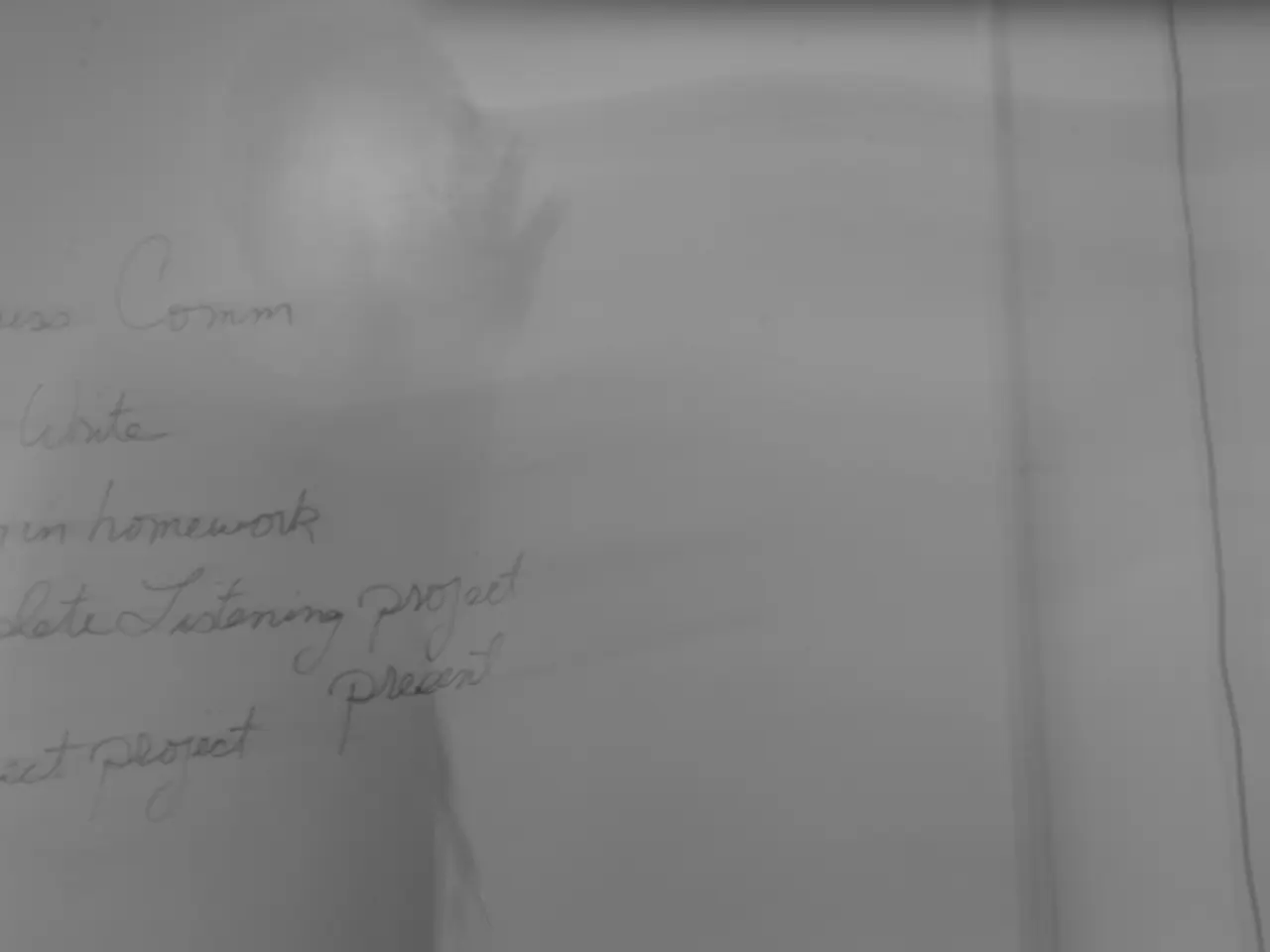Uncertainty ahead through July, according to Dimon's forecast for ongoing turbulence
Jamie Dimon, CEO of JPMorgan Chase, has expressed support for resolving global trade tensions, particularly in relation to tariffs, during the bank's first-quarter earnings report. Dimon views the recent retreat from further tariffs under former President Trump as a pragmatic and positive step, noting the potential economic damage that prolonged tariff conflicts could have inflicted on global markets and inflation.
Despite this, Dimon remains vigilant about ongoing trade and geopolitical risks, citing factors such as tariffs, trade conflicts, and sticky inflation as sources of considerable turbulence in the economy. He warns of market complacency as a significant risk, highlighting ongoing uncertainties related to trade volatility, geopolitical tensions, inflation, and fiscal deficits that could impact the economy and investor sentiment.
JPMorgan Chase, the biggest U.S. bank, reported a net income of $14.6 billion, up 9%, on an 8% rise in revenue, to $45.3 billion. The bank's investment banking division saw a 2% year-over-year increase in revenue, with investment banking fees jumping 12%, driven in part by higher advisory fees. However, Dimon noted that the bank should not have issued a credit card net charge-off forecast for the year due to the lack of clarity for the months ahead.
In light of the current economic uncertainty, Dimon emphasizes that JPMorgan has the margins and capability to get through any economic turmoil. However, he does not expect uncertainty surrounding tariffs and trade conflicts to clear up by July. The trade war poses risks to JPMorgan Chase, given its global business, and Dimon has expressed concern about the escalating situation with China and its continued tariffs on U.S. imports.
JPMorgan economists are predicting 50/50 odds for a recession, a sentiment echoed by Dimon. He also noted that this situation is unique and unlike any past cycle or situation. Many companies, according to Dimon, have a "wait-and-see attitude" due to tariff uncertainty, while both the conversion of the existing pipeline and origination of new activity will require a reduction in current levels of uncertainty.
In response to the trade tensions, Dimon has advocated for a more stable trade environment. His alignment with pragmatic trade policy shifts, including his engagement with political stakeholders, underscores JPMorgan’s interest in regulatory and monetary policy clarity to support market stability while managing inflation and systemic risks.
Wells Fargo CEO Charlie Scharf also encouraged a timely resolution of the trade pursuits, echoing Dimon's sentiments. The ongoing trade tensions and uncertainties, however, have led both banks to adopt a cautious stance on investment banking outlook, recognizing the potential impact on their operations and market performance.
In the face of these challenges, Dimon's call for a de-escalation of tariffs and a resolution of trade tensions stands as a clear message of the need for stability in the global economy. As JPMorgan Chase navigates this uncertain landscape, the bank remains committed to managing risks and adapting to the changing economic landscape.
- Jamie Dimon, the CEO of JPMorgan Chase, emphasizes that ongoing uncertainties related to tariffs, trade conflicts, inflation, fiscal deficits, and geopolitical tensions pose significant risks for the global economy.
- In response to the trade tensions, Dimon advocates for a more stable trade environment as he aligns with pragmatic trade policy shifts, including his engagement with political stakeholders, to support market stability while managing inflation and systemic risks in his bank's global business.




